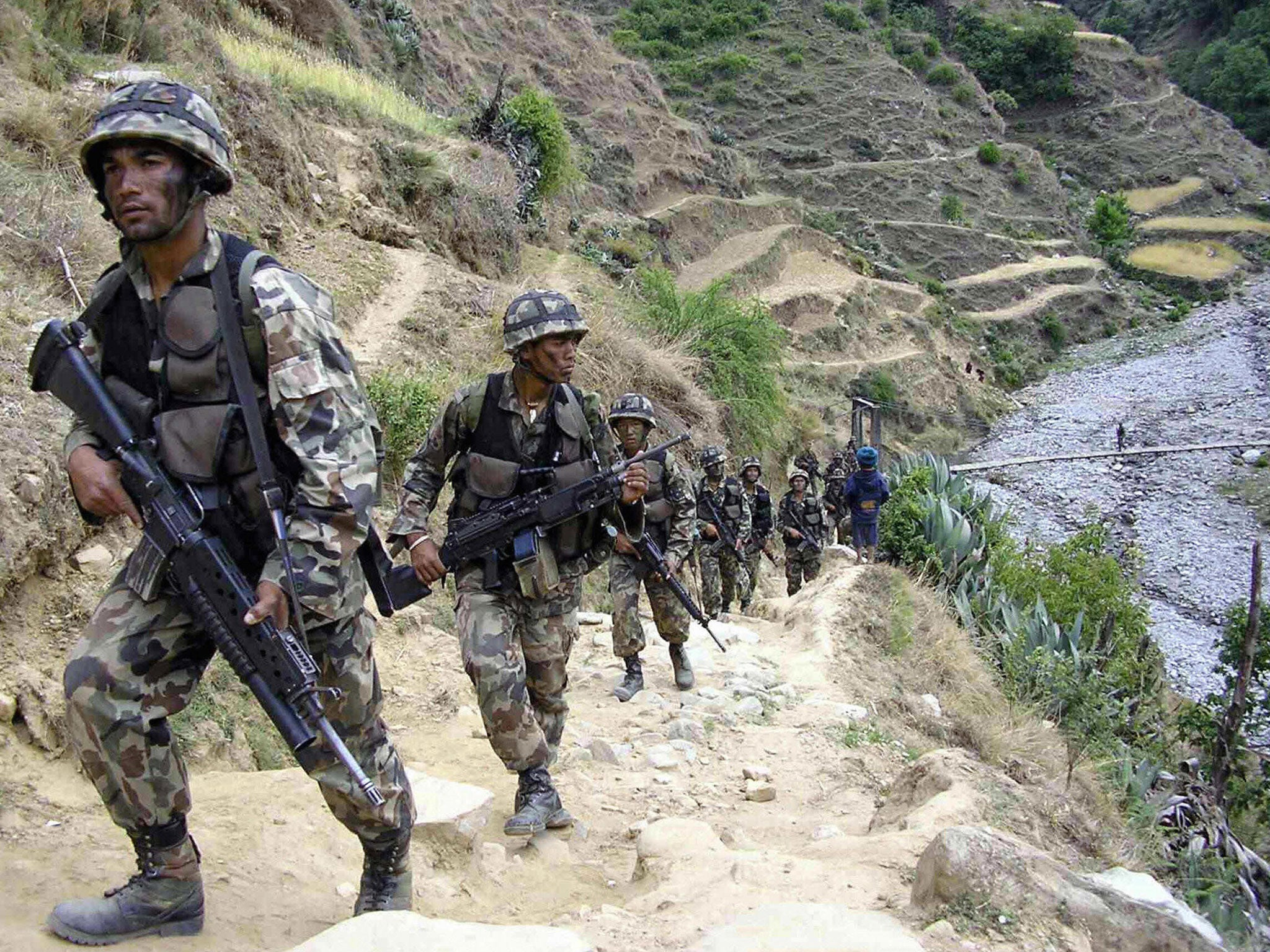Nepalese army officer charged with torture
British court remands colonel in custody, as government of Nepal demands his release

A senior Nepalese army officer appeared in a London court yesterday charged with two counts of torture in a case which has sparked a diplomatic row between Nepal and the United Kingdom.
Colonel Kumar Lama, 46, was arrested by Scotland Yard anti-terrorist officers on 3 January. After two days of questioning, he appeared at Westminster Magistrates' Court, accused of intentionally inflicting "severe pain or suffering" on Janak Bahadur Raut between 15 April and 1 May 2005, and on Karam Hussain between 15 April and 31 October 2005. Civil war raged in Nepal during that year.
In 2005, the officer was head of the Royal Nepal Army's Gorusinghe Barracks in Kapilvastu, where the torture is alleged to have occurred. He now faces a British trial under a law of universal jurisdiction which allows prosecution of allegations of war crimes, torture and hostage taking. If found guilty, Col Lama faces life in prison.
The bespectacled Col Lama, who has indefinite leave to remain in the UK, was casually dressed in a black raincoat, blue open-necked shirt and grey V-neck jumper when he appeared in court. Appearing calm, he spoke through an interpreter only to confirm his name.
Two representatives from the Nepalese embassy, identified as the defence attaché and deputy chief of mission, were also in court to observe proceedings, but declined to make any comment.
The court heard yesterday that the Attorney General, Dominic Grieve, gave permission for the charges to be brought after a senior specialist lawyer at the Crown Prosecution Service put forward the case.
The government of Nepal summoned the British ambassador in Kathmandu to protest over Col Lama's arrest. The Deputy Prime Minister, Narayankaji Shrestha, told reporters that the government had demanded the immediate release of Col Lama, while Nepal also instructed its embassy in London to submit a protest to the British government.
Scotland Yard said the arrest did not take place at the request of Nepali authorities.
The court heard yesterday that the colonel's wife is a nurse and they have two children, a 21-year-old daughter studying at University College London and a 17-year-old A-Level student. The couple have a family home in Hastings, East Sussex, and between 2007 to 2009 Col Lama studied a masters degree at the University of Sussex.
His arrest is seen as an important step forward in a seven-year campaign for justice for some of the victims of Nepal's decade-long civil war. Col Lama had been in the UK for a Christmas holiday, taking a break from his latest tour as a UN peacekeeper in South Sudan.
He arrived in England on 20 December to spend the festive season with his family but, instead of returning to Africa today, following his holiday, the colonel found himself facing police interrogation.
Torture is not a crime in Nepal despite a sustained campaign by human rights groups. The Conflict Victims' Society for Justice, a body set up in Nepal, has been campaigning for the survivors of violence and relatives of those killed and disappeared at the hands of both the state and Maoist rebels during the country's civil war.
The Nepal Conflict Report, released by the UN Office of the High Commissioner for Human Rights, has documented more than 9,000 cases of human rights violations during the insurgency. State personnel were responsible for 60 per cent of the abuses, claims the report.
Nepal has not prosecuted anyone for torture in the seven years since the end of the Maoist conflict. And political parties have failed to set up transitional mechanisms, such as South Africa's Truth and Reconciliation Commission, to address human rights violations, as agreed in the Comprehensive Peace Accord, signed in November 2006.
Col Lama is only the second person to be prosecuted since the 1988 Criminal Justice Act made torture abroad prosecutable under universal jurisdiction.
The only person who has been convicted of torture under this law was Faryadi Sarwar Zardad, who, in 2005, was sentenced to 20 years in prison for conspiracy to commit torture and take hostages in Afghanistan.
Col Lama previously served as a UN peacekeeper in Sierra Leone in 2001 and twice in Lebanon, in 1991 and 1996, the court heard.
He was remanded in custody by District Judge Quentin Purdy and will appear at the Old Bailey on 24 January.
